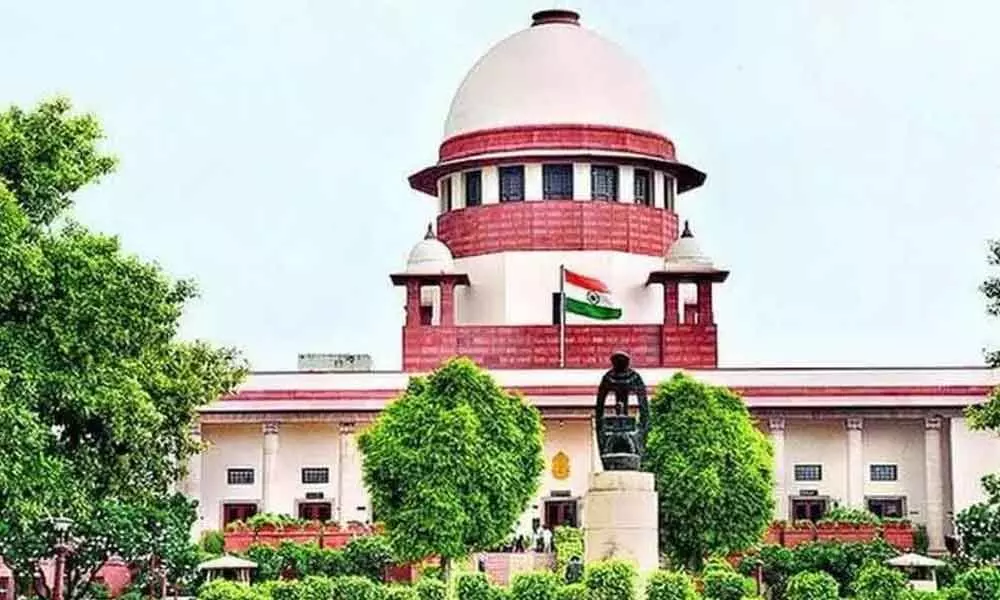Live
- OMG! Yadagirigutta temple babus’ tepid response gets on cottage donors’ nerves
- Swift action undertaken to resolve dialysis patients’ woes
- School Education Saga-IX: Govt schools or anglophiles manufacturing industrial units?
- A grim journey no more
- Heightened tension at SVU as students demand VC’s resignation
- Semi-residential schools to come up across State soon
- Who will be next LS Speaker?
- Prayers offered at Dargah, seeking blessings for Naidu
- Naidu urged to repeal amendment to Assigned Lands Act
- Guntur: Cancer survivors share their tales
Just In
Supreme Court Overturns The Karnataka High Court's Decision In the Prajwal Revanna C ase


Supreme Court
- The high court's order of January 17, 2020 was overturned by a bench of judges led by Sanjay Kishan Kaul and MM Sundresh.
- The panel stated that whether Prajwal has established a rule infringement or not will be decided at trial, but it is not a matter to be dismissed at the threshold.
The Supreme Court on Monday overturned a Karnataka High Court decision rejecting an election petition filed by BJP leader A Manju at threshold on 'hyper-technical grounds' it against victorious candidate in the Hassan Lok Sabha constituency, Prajwal Revanna, who was fielded collectively by the JD(S) and the Congress.
Prajwal, the grandson of former Prime Minister HD Deve Gowda, was charged with corruption after reportedly failing to disclose all of his holdings in his electoral affidavit.
The high court's order of January 17, 2020 was overturned by a bench of judges led by Sanjay Kishan Kaul and MM Sundresh. Despite claims of corrupt practises, the high court ruled that Manju's petition was not supported by an affidavit in Form 25, as required by Rule 94A of the Conduct of Election Rules, 1961.
The panel stated that whether Prajwal has established a rule infringement or not will be decided at trial, but it is not a matter to be dismissed at the threshold. It went on to say that additional proceedings in the election petition must be taken up promptly, because almost two and a half years have gone on preliminary skirmishes rather than the meat of the matter, and were confident for the single judge of the high court will do.
The court asked the high court to re-examine the case because it had been more than two and a half years since the elections.
Manju was also given 15 days to file a suitable affidavit by the court. Manju's plea was deemed un-maintainable by the HC since it was filed lacking an affidavit and so was inadequate.
The high court single judge who was hearing the election petition should have given the appellant the chance to write an affidavit in support of the petition in Form 25 in addition to the affidavit already filed with the election petition, according to the top court.
The top court observed in its decision that Manju's main argument is that she won the election by concealing evidence that would have been relevant in establishing the electorate's judgement.
The court did not comply with Prajwal's argument that allowing an affidavit to be filed later would allow for embellishment of the case and would negate the statutory requirement. The charges concerned concealed gains from business operations through a partnership, as well as money received from a Rajya Sabha member. According to Prajwal's counsel, the claims were made without disclosing any sources of information via an affidavit in Form 25.
Meanwhile, with 6,76,606 votes, Prajwal was announced the winner. Receiving 5,35,282 votes, Manju was the runner-up.

© 2024 Hyderabad Media House Limited/The Hans India. All rights reserved. Powered by hocalwire.com






